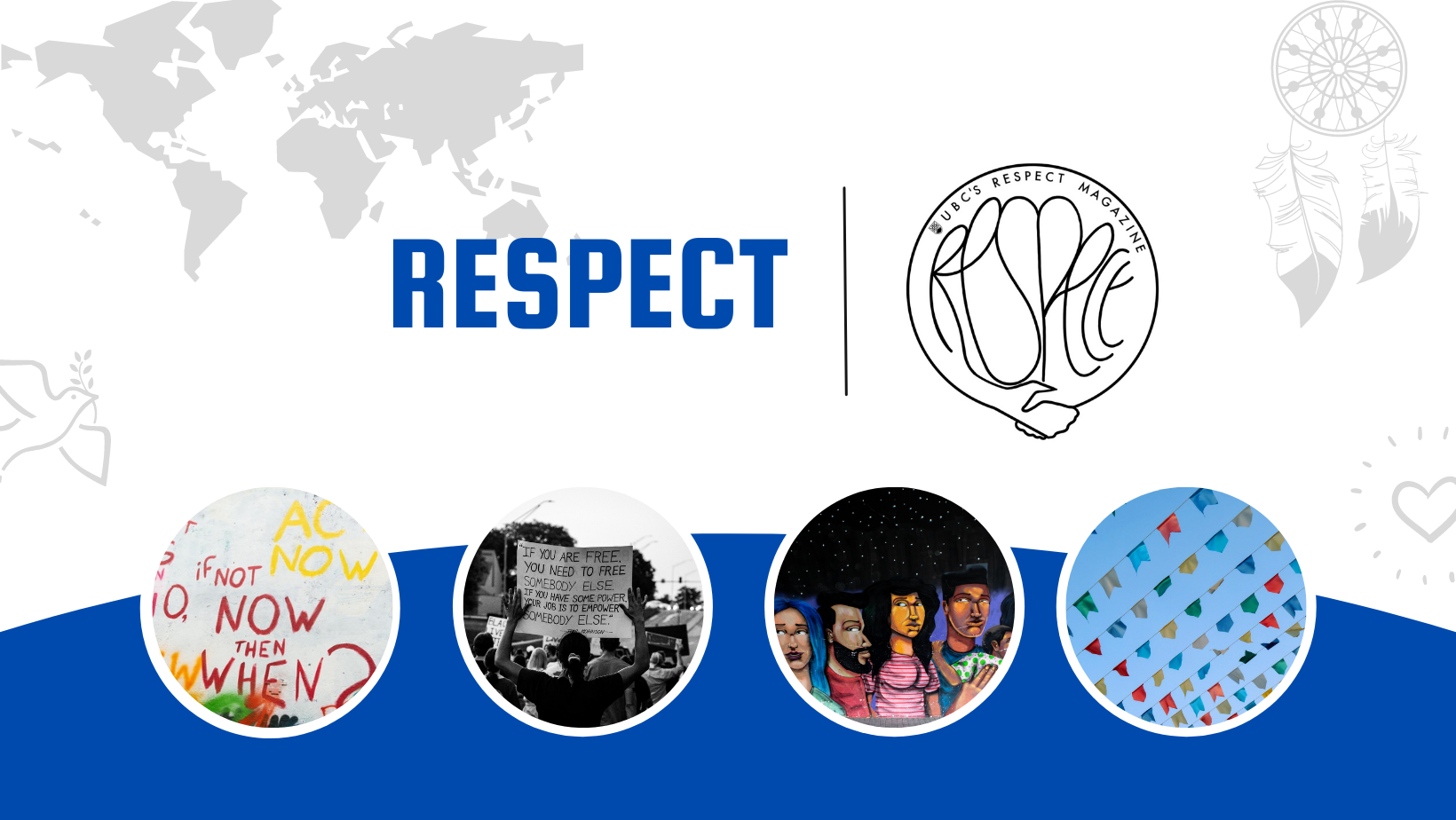Graduate Schools: WEIRD, Powerful Places for Inclusive Research Practices by Martin Dammert
Research conducted in UBC Graduate School, and at neighbouring graduate schools, can be tremendously WEIRD.
And most students and faculty are not oblivious to this reality. Instead, university community members are regularly faced with clear signs and symptoms of grad life’s weirdness. Students and faculty are confronted, daily, by the dominance of weird research carried often by weird academics. But is the UBC community willing to continue fighting to overcome weirdness? Can graduate schools become powerful and influential places in this odyssey?
In 2010, Henrich, Heine, and Norenzayan (all UBC faculty at the time), published a seminal article discussing assumptions and implications of the oversampling of research participants from Western, Educated, Industrialized, Rich, and Democratic (WEIRD) societies across behavioural sciences.
Overwhelmingly recruiting participants from WEIRD societies meant that findings were not representative of humanity, at all. Nonetheless, results, conclusions, and implications, solely based on “outliers” (see Footnote 1), were seen as the norm and often generalized to all when examining human development, behaviour, cognitions, and emotions. Disseminating an inaccurate representation of humanity’s diversity.
Thirteen years later, in 2023, despite rising and well intentioned (but often isolated) efforts, academia and graduate schools continue to design, conduct, and publish research focusing mainly on WEIRD samples and societies. Despite a growing awareness around the significance of the diversification of samples, a review of all articles, for example, published in Evolution and Human Behavior journal between 2015 and 2020, collecting primary data, found that most abstracts did not acknowledge participants’ country of origin and that only 14% conducted research in small-scale societies (see Footnote 2) (Clark Barrett, 2020). To what extent could these results support a deeper understanding of evolution and human behaviour? If aiming to design and conduct studies to promote meaningful conversations around human behaviour, equity, diversity, and inclusion, it would be (and still is) important for researchers to “begin to take the difficult steps to building a broader, richer, and better-grounded understanding of our species” (Henrich et al., 2010, p. 83). And especially important for graduate students currently consolidating research skills and competencies who could potentially become prominent researchers while contributing to the development of their fields of study. Even if this decision should have been made thirteen years ago.
Gaining greater awareness of the oversampling of WEIRD participants is key across graduate schools.
However, the time has also come to thoroughly reflect on the use of binary dichotomies when categorizing subpopulations. The time to encourage graduate students to reflect on the validity, power, and implications of the everyday use of these dichotomies (e.g., WEIRD (see Footnote 3) vs. non-WEIRD, Easterners vs. Westerners, and Global North vs. Global South, to name a few) in research aiming to understand human experience and change. The time to shed light on the particularities and uniqueness of individuals and groups of people around the world. Or even, to consider whether “the time has come to reimagine the future of sample diversity” (Ghai, 2021, p. 971). But, more importantly, the time to reflect on how a deeper awareness and understanding of this phenomenon can positively impact graduate students’ future orientation in academia, academic identity, and future practice in promoting inclusive and transparent research. And, hopefully, the time to question whether the application of these dichotomies in research and practice can cause more harm to participants, subpopulations, and academia than initially anticipated by ignoring the complex and intersectional nature of human beings. As echoed by Clancy and Davis (2019), “this acronym (…), while exposing the weirdness of the WEIRD, may also contribute to the erasure of multiple groups and, in doing so, reinforce rather than disrupt the practices it aims to critique” (p. 170). Subsequently, ignoring and neglecting the perspectives and experiences of minorities, glamourizing non-WEIRD participants in research, and assuming all WEIRD and non-WEIRD participants share homogenous backgrounds and experiences (Clancy & Davis, 2019), to name a few repercussions.

Can graduate students become key actors in this odyssey and contribute to the diversification of research usually conducted with White samples and participants from G20 countries (See Footnotes 4 and 5)?
Are graduate schools powerful enough to steer the research wheel toward a more diverse and inclusive path? Definitely. But this is no easy task. As a Peruvian educational psychologist hoping to collaborate in the diversification of research in the field of motivation to achieve a holistic understanding of motivational dynamics across diverse socio-contextual settings, I continuously try (and often fail) to conduct research beyond traditional samples (Gurven, 2018). Despite a genuine interest, my research usually ends up employing students and teachers from urban areas who fall into medium or high socioeconomic status (a Peruvian privilege and not a representation of most students and teachers in my home country). Even if recruiting non-WEIRD participants from the Global South. Despite my efforts in learning about others’ lived experiences, the combination of access to potential participants (mainly recruited by convenience sampling techniques) and a lack of resources to go beyond traditional samples often hinder this initial desire. Reminding me, frequently, that interest and effort are never enough. That this goal is extremely challenging (and not very feasible) for most graduate students. That structural and system changes in graduate schools are still needed.
But then, what is feasible for graduate students conducting research?
Although no magic bullet seems to be readily available for students embarking on this journey, the following recommendations would facilitate the transition of graduate schools (and students) in becoming more powerful and influential when combating WEIRD oversampling. Firstly, it is essential for graduate students to recruit samples which are best suited for their research purposes (whether WEIRD or not). And of course, to employ sampling techniques and recruitment strategies that acknowledge participants’ diversity and heterogeneity, when and if relevant. Secondly, graduate students should openly share detailed information regarding participants’ characteristics (when appropriate and acknowledging ethical implications) even if not formally required to do so when disseminating findings in publications or translating knowledge. Thirdly, graduate students should regularly examine their own assumptions and expectations, which can (and will) influence their research, to facilitate transparency and sincerity as a researcher (Levitt et al., 2018). A reflexive practice throughout research stages will encourage students to be thoughtful and mindful of how to select the study’s sample, how to recruit participants, and how to recognize the implications surrounding participants’ characteristics. Fourthly, graduate schools should encourage and fund research collaborations and partnerships between graduate students, non-WEIRD colleagues, and participants, who are usually not welcomed nor embraced by academia. Particularly, if hoping to take part in participatory approaches to research with (rather than on) participants. Lastly, if willing to embrace sample diversity in research and contribute to a more comprehensive understanding of humanity, graduate students and graduate schools need to remember that this journey will be long and tedious. One in which students will have to go the extra mile even when navigating an array of roles and responsibilities (e.g., building connections, recruiting participants, translating and adapting instruments) if willing to avoid conducting research with oversampled groups of people.
Research conducted in graduate schools can and is tremendously WEIRD. But it does not have to be. It should not be.
Especially, if aiming to conduct high-quality research to support people from all around the globe and nurture a new generation of researchers. A cohort of researchers (and possibly, future leaders) who recognize and value the importance of diversity in research while aiming to better comprehend human experience and change. Graduate schools have the power to evolve into powerful places for inclusive research practices. Places leading structural changes. Places where we all acknowledge and deeply support equity, diversity, and inclusion. Places where weirdness is not the norm. Where graduate students smoothly navigate weirdness. Places where diversity in research and practice is fully embraced. A powerful, rather than WEIRD, place for inclusive research practices.
Footnotes
- Henrich et al. (2010) describe WEIRD participants as “outliers” given that they can be found on “the tail-ends of distributions of psychological and behavioral phenomena” (p. 76).
- For example, Hadza, Tsimane, Vanuatuan, Fijian.
- See Ghai (2021), for a deeper discussion on why behavioural science should retire the WEIRD dichotomy.
- Clancy and Davis (2019) argue that “WEIRD is just another way of saying white” (p. 173).
- “The Group of Twenty (G20) comprises 19 countries (Argentina, Australia, Brazil, Canada, China, France, Germany, India, Indonesia, Italy, Japan, Republic of Korea, Mexico, Russia, Saudi Arabia, South Africa, Türkiye, United Kingdom and United States) and the European Union. The G20 members represent around 85% of the global GDP, over 75% of the global trade, and about two-thirds of the world population” (G20 Secretariat, 2023).
References
Clancy, K. B. H., & Davis, J. L. (2019). Soylent Is People, and WEIRD Is White: Biological Anthropology, Whiteness, and the Limits of the WEIRD. Annual Review of Anthropology, 48, 169-186. https://doi.org/10.1146/annurev-anthro-102218- 011133
Clark Barrett, H. (2020). Deciding what to observe: Thoughts for a post-WEIRD generation. Evolution and Human Behavior, 41(5), 445-453. https://doi.org/10.1016/j.evolhumbehav.2020.05.006
G20 Secretariat (2023, March 1). About G20. India’s G20 Presidency. https://www.g20.org/en/about-g20/
Ghai, S. (2021). It’s time to reimagine sample diversity and retire the WEIRD dichotomy. Nature Human Behaviour, 5(8), 971–972. https://doi.org/10.1038/s41562-021-01175-9
Gurven M. D. (2018). Broadening horizons: Sample diversity and socioecological theory are essential to the future of psychological science. Proceedings of the National Academy of Sciences of the United States of America, 115(45), 11420–11427. https://doi.org/10.1073/pnas.1720433115
Henrich, J., Heine, S. J., & Norenzayan, A. (2010). The weirdest people in the world? Behavioral and Brain Sciences, 33(2-3), 61–135. https://doi.org/10.1017/S0140525X0999152X
Levitt, H. M., Bamberg, M., Creswell, J. W., Frost, D. M., Josselson, R., & Suárez-Orozco, C. (2018). Journal article reporting standards for qualitative primary, qualitative meta-analytic, and mixed methods research in psychology: The APA Publications and Communications Board task force report. American Psychologist, 73(1), 26–46. https://doi.org/10.1037/amp0000151
About the Contributor
Martin Dammert | Graduate Student | Human Development, Learning, and Culture Program | Department of Educational and Counselling Psychology, and Special Education | Faculty of Education | UBC Vancouver
Educational psychologist with experience in research and teaching. His research interests include social perspectives of learning and teaching, motivational phenomena across educational settings and cultures, and the scholarship of teaching and learning. Through his research, he hopes to support students’ and teachers’ learning, development, and well-being.
Image by Martin Dammert

I appreciate the honesty of this article. As a psychology student, I recognize both the benefits and the potential problems associated with convenient sampling. Although convenience samples can lower costs and help obtain participants, it can have a significant impact on the study’s generalizability. Upon meeting people from many diverse ethnic backgrounds, I have become aware of the massive impact that culture has on their views and beliefs. Learning in this article that many researchers do not consider these differences is a concern that should be addressed in future research.